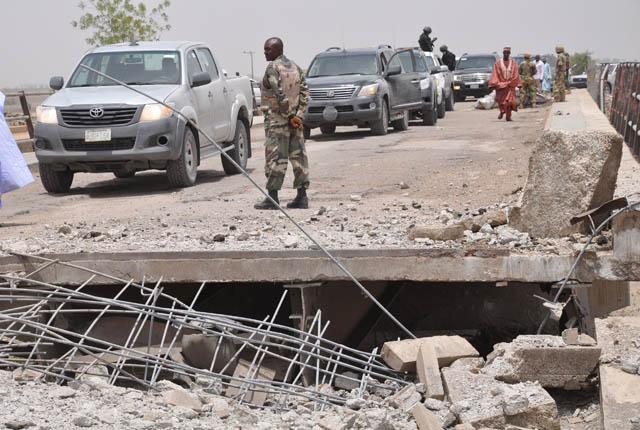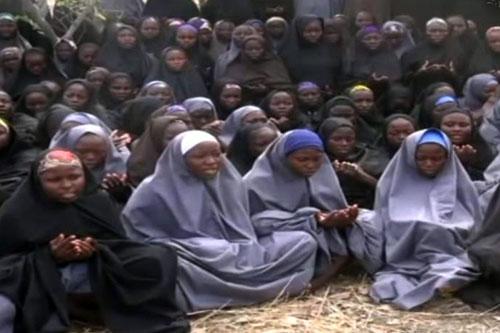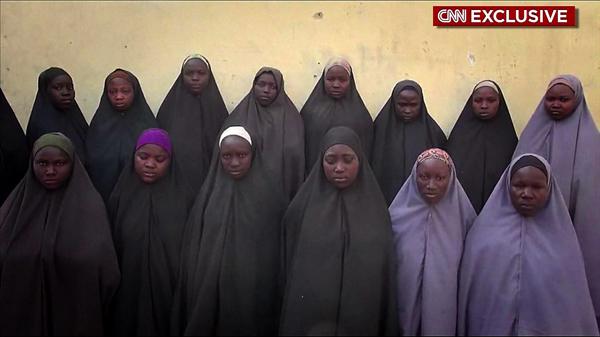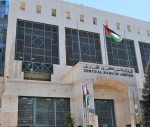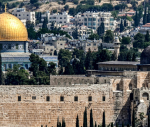You are here
New Boko Haram video claims to show missing Nigerian schoolgirls
By AFP - May 12,2014 - Last updated at May 12,2014
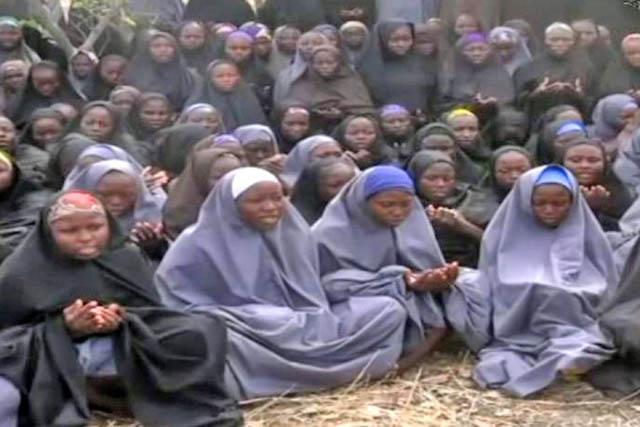
LAGOS — Boko Haram’s leader said in a new video obtained by AFP on Monday that more than 200 abducted Nigerian schoolgirls would only be released if the government freed militant fighters from custody.
Abubakar Shekau made the claim in a 27-minute video, which he claimed showed about 130 of the girls who were kidnapped from their school in the remote northeastern town of Chibok nearly a month ago.
The girls’ disappearance has triggered global outrage, in part due to a social media campaign that has won the support of high-profile figures from US First Lady Michelle Obama to Pope Francis.
The militant leader said the girls shown in the video had converted to Islam and all were shown in Muslim dress, reciting the first chapter of the Koran and praying at an undisclosed location.
Boko Haram has made prisoner exchange demands before without success and Nigeria’s government again dismissed the request outright.
Asked if the government would reject Shekau’s suggestion, Interior Minister Abba Moro told AFP: “Of course.”
“The issue in question is not about Boko Haram... giving conditions,” he added.
A total of 276 girls were abducted on April 14 from Chibok, which has a sizeable Christian community. Police say 223 are still missing.
Nigeria’s government has been criticised for its lack of immediate response to the kidnapping but has been forced into action as a result of international pressure.
President Goodluck Jonathan has accepted help from the United States, Britain, France, China and Israel, which have sent specialist teams to help in the search effort.
French President Francois Hollande has also called for a West Africa security summit to discuss the Boko Haram threat, which could be held as early as Saturday.
The United States and Britain have been invited, he said.
‘We have liberated them’
The latest footage shows girls in black and grey full-length hijabs sitting on scrubland near trees.
Three of the girls are interviewed. Two say they were Christian and had converted while one said she was Muslim.
All three pronounce their belief in Islam dispassionately to the camera, sometimes looking down at the ground and apparently under duress.
Most of the group behind them were seated cross-legged on the ground. The girls appeared calm and one said that they had not been harmed.
There was no indication of when the video was taken, although the quality is better than on previous occasions and at one point an armed man is seen in shot with a hand-held video camera.
Shekau does not appear in the same shot. Instead, he is seen dressed in combat fatigues, carrying an automatic weapon in front of a lime-green canvas backdrop.
Boko Haram has been waging an increasingly deadly insurgency in Nigeria’s mainly Muslim north since 2009, attacking schools teaching a “Western” curriculum, churches and government targets.
Civilians, though, have borne the brunt of recent violence, with more than 1,500 killed this year alone while tens of thousands have been displaced after their homes and businesses were razed.
Speaking in his native Hausa language as well as Arabic, he restates his claim of responsibility made in a video released last Monday and said the girls had converted to Islam while others had not.
“These girls, these girls you occupy yourselves with... we have indeed liberated them. These girls have become Muslims,” he said.
“There are still others who have not converted and are holding on to your belief. There are many of them,” he added.
“You are making so much noise about Chibok, Chibok, Chibok. Only Allah knows how many women we are holding, the infidels who Allah commands us to hold.”
‘Free prisoners’
On the prisoner release, Shekau said Boko Haram’s brothers in arms had been held in prison for up to five years and suggested that the girls would be released if the fighters were freed.
“We will never release them [the girls] until after you release our brethren,” he said.
Boko Haram has used kidnapping of women and young girls in the past and Shekau indicated that more were being held.
Eleven girls were abducted from the Gwoza area of Borno state on May 4.
President Jonathan has previously said that he believed the girls were still in Nigeria and would be freed soon.
There have been fears that the girls may have been taken into neighbouring Chad or Cameroon, from where Boko Haram is said to have launched attacks in the northeast and may have camps.
Nigeria’s army is currently concentrating its efforts on the Sambisa forest of Borno state while international assistance involves specialist surveillance and intelligence teams.
Washington said on Sunday that no US troops would be used in any rescue mission while the leader of the world’s Anglicans, Archbishop of Canterbury Justin Welby, urged for negotiations to start.
But he admitted that back-channel talks would be fraught with danger because of Boko Haram’s disparate structure, its “extremely irrational” action and their “utterly merciless” history.
Related Articles
Manned US aircraft were flying over Nigeria on Tuesday, searching for over 200 schoolgirls abducted by Boko Haram Islamists after Abuja dismissed a prisoner-swap offer from the militants.
KANO, Nigeria — The first schoolgirl abducted by Boko Haram in Chibok, northeast Nigeria, more than two years ago has been found, the milita
LAGOS — Nigeria's government on Thursday said it was studying a "proof of life" video showing 15 of the more than 200 schoolgirls abducted b


